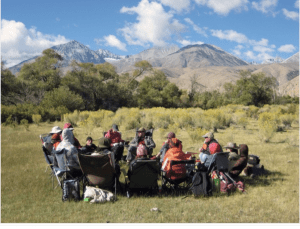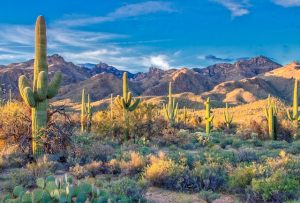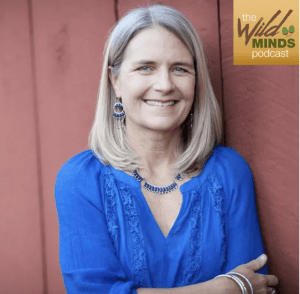What is a Vision Quest and Why Do One? (from Huffington Post)
Huffington Post – Ask Maddisen: What Is A Vision Quest and Why Do One?
The term “vision quest” was first coined by 19th-century anthropologists to describe the rite-of-passage ceremonies of certain Native American cultures. Traditionally, these rituals have been performed to mark significant life transitions or changes. Generally speaking, they are seen as both personal and collective events that are guided and witnessed within the community, and often involve the “quester” spending time alone in nature in search of a personal vision that becomes a vision to support the entire community. An important vision quest, for example, is one that marks the passage of adolescents into adulthood.
The vision quest has evolved into a general term that refers to Native American and also to the rite-of-passage rituals found in almost every tradition, culture, and religion throughout the world. And a number of these once-private pan-cultural ceremonies and teachings have seeped out and entered into the hearts and lives of the many.
The vision quest continues to be a powerful way for adolescents as well as adults to acknowledge, mourn, release, welcome, and celebrate important life transitions of any kind, such as actual or symbolic births and deaths, career changes, divorce, marriage, menopause, birthdays, successes and achievements, children leaving home, recovery from addiction, etc. A vision quest can also be a deeply cathartic way to get away from it all and recharge your batteries!
On a deep level, we seem to inherently understand the vital importance of these “marking” rituals, and how without them, there may be a tendency to move into unconscious and even destructive behaviors. Especially in challenging times, these ceremonies give us the opportunity to turn changes into sacred initiations — empowering, humbling, strengthening, and enlightening us.
There are individuals and organizations around the globe that facilitate rite-of-passage programs such as the vision quest. As you read in my bio, I’ve participated in this work with the School of Lost Borders for more than a decade, and have continued to experience meaningful and profound levels of insight, revelation, and growth, along with a deepening love and connection to spirit, nature, my self, and others. Please note that the School of Lost Borders uses the term “vision fast” rather than “vision quest” to differentiate from and show respect for the ceremonial practices of the North American indigenous peoples.
In addition to other trainings at the school, I’ve done six vision fasts to date — marking two significant birthdays, a career change, two key life changes, and a relationship change. And I’ve participated in these programs with all types of interesting people of all ages and from all over the world, from young adults to elders, including investment bankers, grandmothers, artists, doctors, moms, dads, CEOs, therapists, you name it — all embarking on a vision fast to mark their own unique transitions.
The Vision Quest: Preparation, Solo, Return
The format and length of vision quests may vary among facilitators, but typically the ceremony involves several days of preparation, 3-4 days and nights of fasting alone in a wilderness place, and a few days of incorporation.
Preparation
In the preparation, you are readied to physically, psychologically, mentally, and spiritually benefit from the experience of fasting alone in the wilderness.
Solo
The solo experience involves time alone in a natural place (solitude), fasting (emptiness), exposure to the elements (vulnerability), and self-reliance (self-trust). So in that sense, BR, you might reframe your fears as a natural response to the anticipation of such a courageous hero’s journey. During solo time, the guides maintain a safe perimeter around the area and make sure you have sufficient provisions. I liken solo time to being inside a cocoon, where within the illusory sheath of dormancy, new life percolates, just waiting for its time to explode into full potential. The experience of solo time is somewhat ineffable, full of juice, profound and sublime, different for everyone, guaranteed to create memories that stay with you for a lifetime!
Return
Upon return, you join together with the other questers and guides for the sharing of personal stories. I love story time. The guides support you by listening and reflecting the significant lessons of your story, and then challenge you to give your vision practical feet — to live the life and change(s) you have rightfully claimed as your own!
Remembering Who You Are
There’s another important way the vision quest is good for us, and that is how it reconnects us to nature, the place from whence we came!
Researchers are increasingly recognizing that direct and immediate contact with the natural world promotes health and development, and that a disconnection from the natural world has negative consequences for human health and development. The documented benefits of spending time in nature include stress reduction, fascination and appreciation for the environment, a sense of competence and self-esteem balanced with a sense of trust in oneself and the world, a more mature morality and care for others, and a sense of awe, wonder, and sacredness. Direct contact with nature also leads to greater commitment to positive environmental action.
We live in a world marked by borders, borders between continents, people, and even between our own hearts and minds. And perhaps one of the most pervasive borders is the one we’ve mistakenly placed between ourselves and nature. “The Big Lie is that humans are not a part of nature.” The truth is, we are nature!
And so, dear BR, I hope this answers your questions and sheds some light on the fears. There are many potential benefits in doing something as simple and powerful as a vision quest. I close with this quote from the beloved, late Steven Foster, who founded the School of Lost Borders along with his wife Meredith Little. “My soul is striving to remember who I am, to make who I am compatible with who I was born to be, to bring who I am into synch with who I will be.” One way to begin answering this call may be through the experience of a vision quest.
Share This
Related posts




